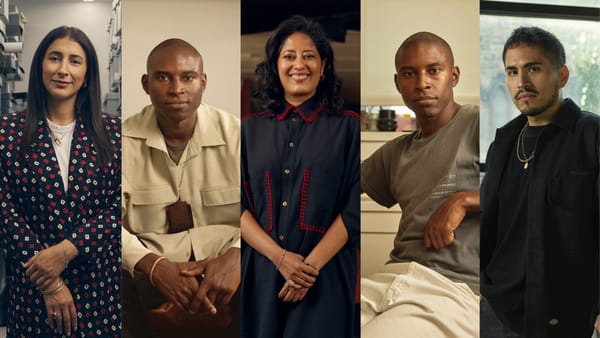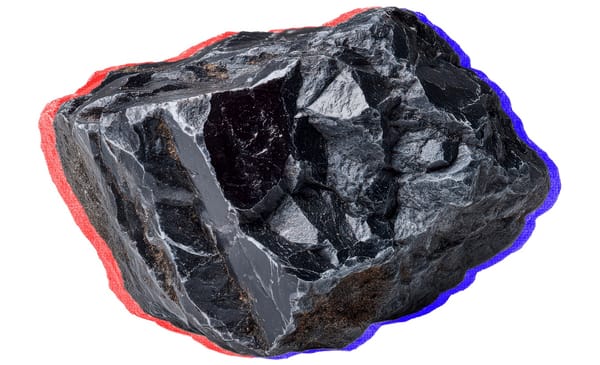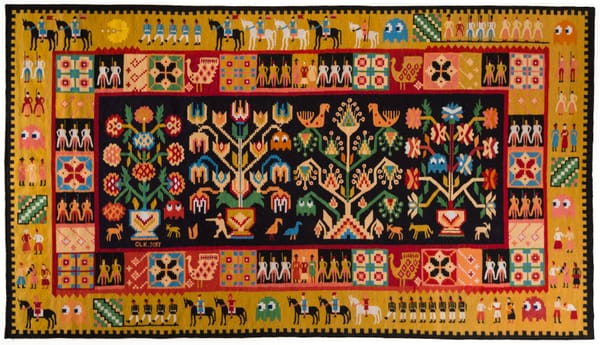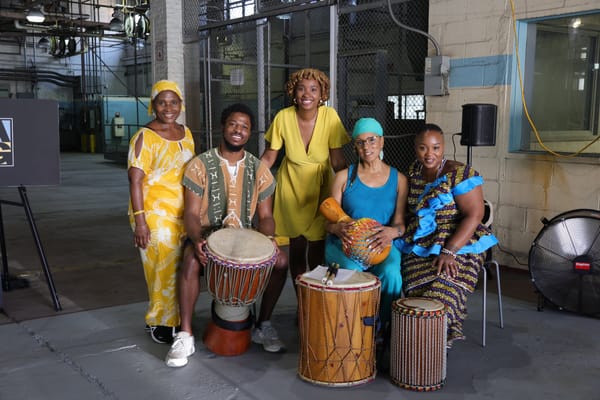The Cubist Cowboy Rodeo
OKLAHOMA CITY — Both Cubism and the cowboy rodeo rose to prominence in the early 20th century, and their wrangling of energy into one clashing place is a shared kinetic spirit. Yet Wayne White's massive mechanical puppets may be the first art to really embrace their kindred energy.
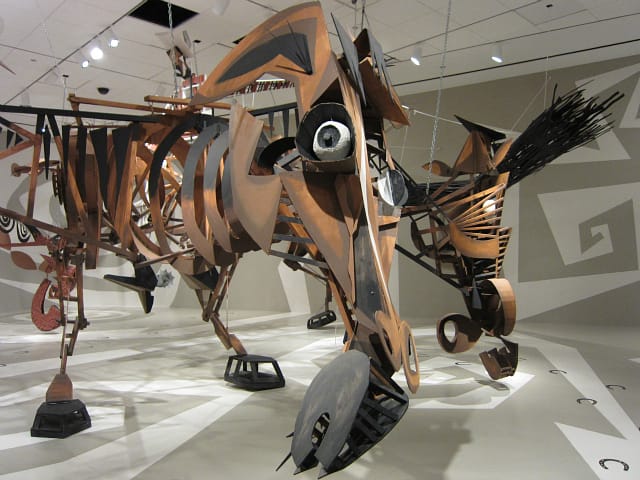
OKLAHOMA CITY — Both Cubism and the cowboy rodeo rose to prominence in the early 20th century, and their wrangling of energy into one clashing place is a shared kinetic spirit. Yet Wayne White’s massive mechanical puppets may be the first art to really embrace their kindred energy.
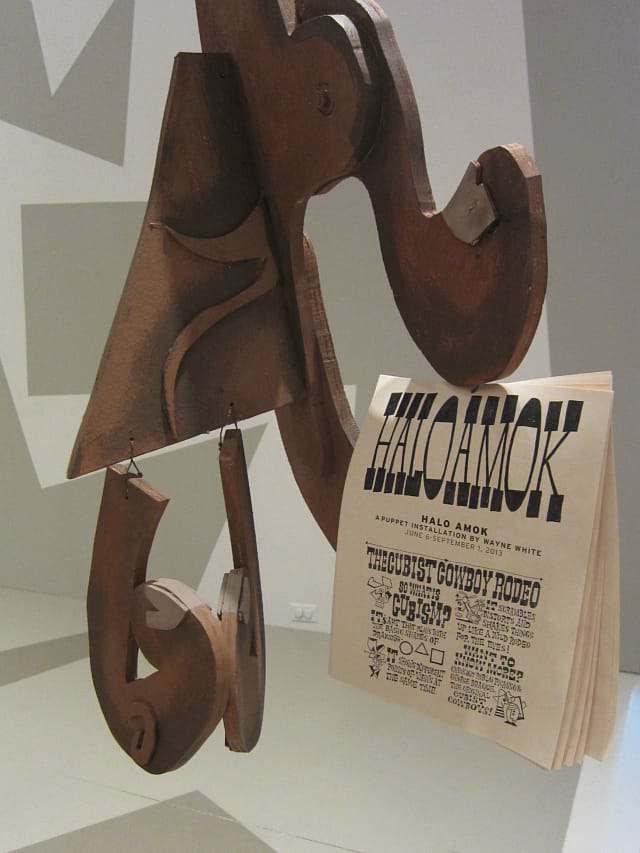
HALO AMOK: A Puppet Installation by Wayne White at the Oklahoma City Museum of art is a “Cubist cowboy rodeo,” as White describes it. The Tennessee-born White may be best known for his Emmy-winning work crafting wild puppets for Pee-wee’s Playhouse in the 1980s, or his sets for the Smashing Pumpkins’ “Tonight, Tonight” video, but he’s a hard artist to nail down, working across cartooning, painting, production design, illustration, and puppet design. HALO AMOK is an anagram for Oklahoma, playing on the idea of rodeos being places where movement has gone “amok,” and has gigantic Cubist shapes crafted from simple materials like cardboard, Styrofoam, and wood into a rodeo bull rider, a bronco rider, and a calf roper holding a twirling lasso aloft.
As White states in the exhibition text, Cubism “scrambles, distorts and shakes things up like a wild rodeo for the eyes!” He calls Pablo Picasso and Georges Braque “the original Cubist cowboys,” and the puppets definitely have the ideas of two-dimensional movement of those artists, like a horse having three tossing heads to show movement even when static. But it’s when you pull the ropes attached to them that the rodeo really takes off, with the abstract cowboys thrown up and down on the clattering horses and bull.
HALO AMOK is site-specific to the museum, so it won’t be a traveling western show, but you can check it out in photographs below:
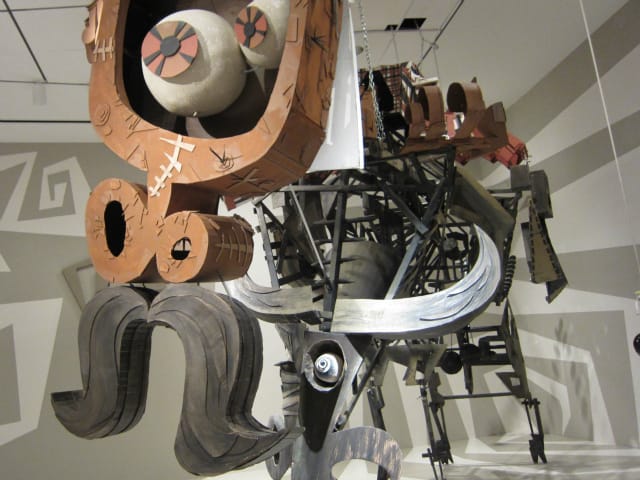
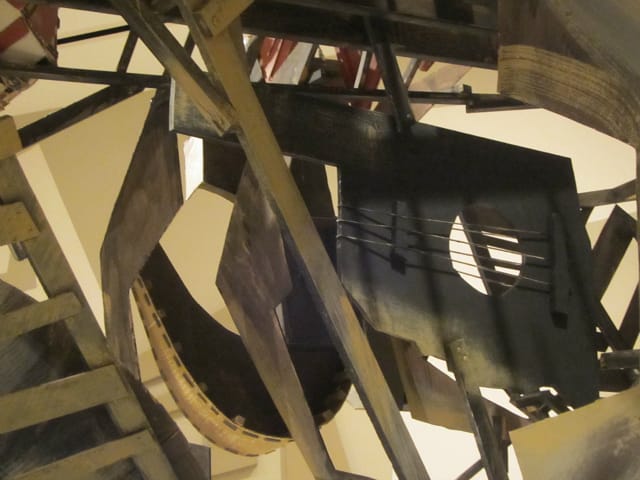
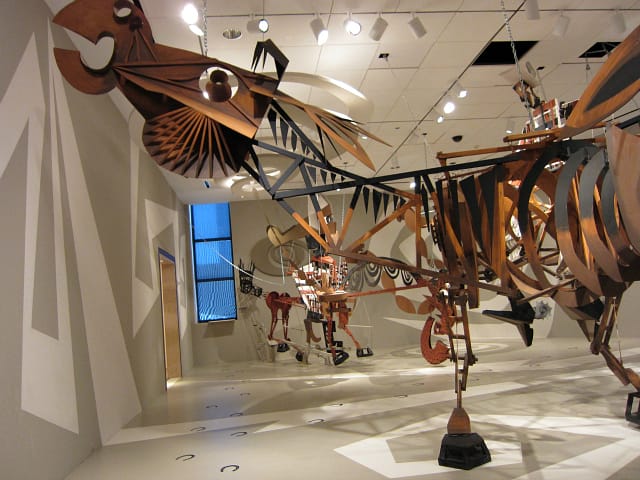
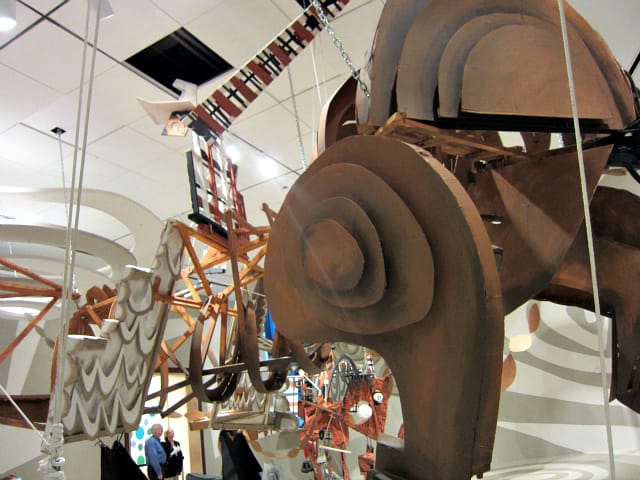
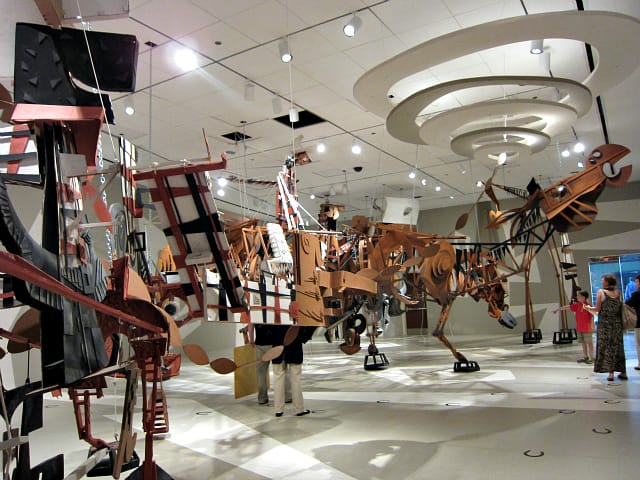
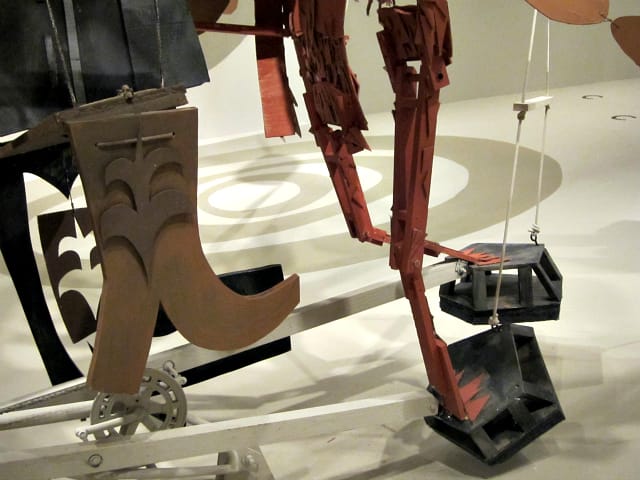
HALO AMOK: A Puppet Installation by Wayne White continues at the Oklahoma City Museum of Art (415 Couch Drive, Oklahoma City) through September 1.


